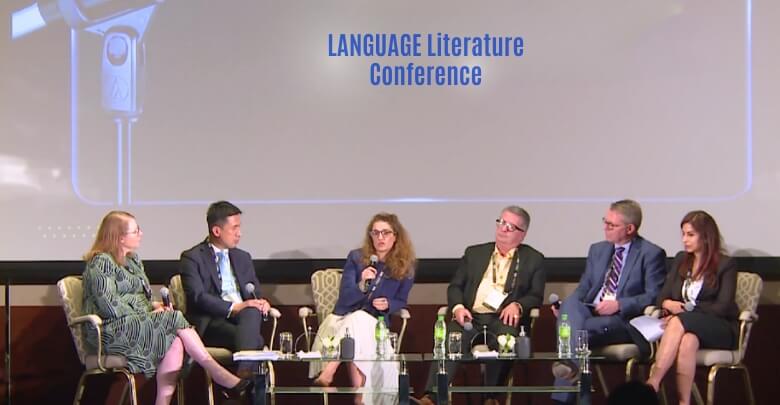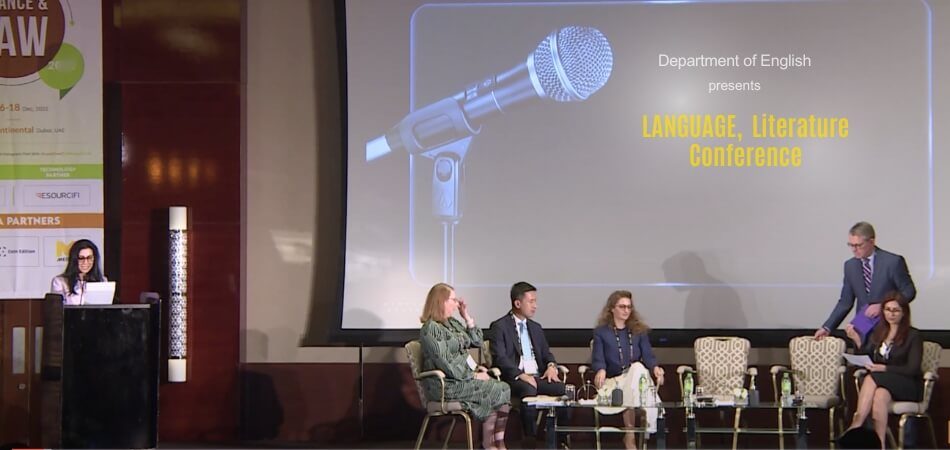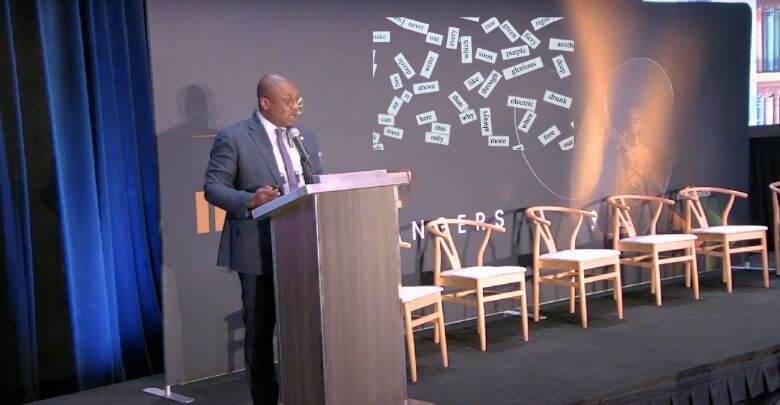Language literature explores language and its use in various modes of literature. Cultural, social, and personal identities are influenced by language. These scholars analyze texts, discover meanings, and contribute to our knowledge of human expression. So, what is a language literature conference?
A language literature conference is an event that connects researchers, scientists, scholars, and students to exchange experiences, share new ideas, and discuss research findings in various aspects of languages and literature.
Curious to learn more about the benefits and experiences of attending a language literature conference? Follow along as we explore deeper into the significance and impact of these enriching conferences.
Purpose of The Language Literature Conference
Language Literature Conferences serve vital roles in the academic and literary communities, acting as platforms for the exchange of ideas, research, and best practices. These conferences bring together scholars, writers, educators, and students, promoting an environment where collaboration and innovation can flourish. Here’s a closer look at the primary purposes of these gatherings.
Promotion of Research and Scholarship
Conferences provide an opportunity for researchers to present their findings, share insights, and discuss methodologies. This not only highlights new discoveries but also invites constructive feedback from peers.
Networking Opportunities
Attendees can connect with like-minded individuals, leading to collaborations and partnerships. Meeting others in the field can create lasting professional relationships that extend beyond the conference.
Sharing of Ideas and Theories
Language and literature are constantly growing fields. A language literature conference encourages the sharing of contemporary theories and practices, enabling participants to stay current with the latest trends and discussions.
Professional Development
Many conferences offer workshops and seminars designed to improve participants’ skills. These sessions provide practical tools and strategies that attendees can implement in their teaching or writing.
Encouraging Diversity of Perspectives
With speakers and participants from various backgrounds and regions, these conferences celebrate diversity in language and literature. This richness of thought can lead to innovative ideas and broaden participants’ understanding of the fields.
Inspiration and Motivation
Listening to keynote speakers, attending thought-provoking sessions, and engaging in discussions can rekindle a passion for language and literature. It reminds attendees of the significance of their work and the impact it can have on society.
Language literature conferences are essential for nurturing growth, encouraging collaboration, and advancing the fields of language and literature. They are not just gatherings; they are vibrant communities where ideas come to life.
What Is a Language Literature Conference?
A language literature conference features presentations on the latest research in the field. Research findings are presented, methodologies are discussed, and feedback is received. This exchange of ideas drives innovation and deepens knowledge.
These conferences also feature workshops and panel discussions. These sessions offer practical insights and in-depth discussions on various topics. Attending these events helps participants stay updated with trends and best practices. Engaging in these activities improves both personal and professional development.
These conferences emphasize networking. Form valuable professional relationships with peers and experts. An overseas conference organizer arranges the language literature conference, ensuring a diverse and enriching experience. Future collaborations can result from these connections.
Key Components of A Language Literature Conference
A language literature conference is a vibrant event where scholars, researchers, and students gather to share knowledge and insights. These conferences feature various key components that contribute to their success. Participants can make the most of their experience by understanding these components.
Presentations and Panels
Presentations and panels form the backbone of any language literature conference, providing a platform for speakers to share their research and ideas.
- Diversity of Topics: Presenters often cover a wide array of topics, from literary analysis and criticism to discussions on language acquisition and pedagogy. This diversity ensures that attendees can find sessions that align with their interests.
- Panel Discussions: In addition to individual presentations, many conferences feature panel discussions. These sessions allow multiple experts to engage in dialogue about a specific theme, offering varied perspectives on the subject matter.
- Q&A Sessions: After presentations, Q&A sessions encourage interaction between presenters and attendees. This engagement allows participants to delve more in-depth into the topics discussed and gain insights from experts.
Workshops and Seminars
Workshops and seminars are interactive sessions designed to enhance attendees’ practical skills and knowledge.
- Skill Development: Workshops often focus on specific skills, such as creative writing, literary analysis, or teaching methodologies. Attendees participate in hands-on activities, making these sessions both informative and engaging.
- Collaborative Learning: Seminars typically promote collaboration among participants. Attendees may work in groups to discuss texts or develop new ideas, promoting a sense of community and shared learning.
- Feedback Opportunities: Many workshops offer participants the chance to share their work and receive constructive feedback from peers and facilitators. This feedback can be invaluable for personal and professional growth.
Keynote Speakers
Keynote speakers play a significant role in setting the tone for the conference and inspiring attendees.
- Renowned Experts: Keynote speakers are often distinguished figures in the field of language and literature. Their expertise and experience provide valuable insights and set a high standard for the conference.
- Inspiring Addresses: A well-delivered keynote address can inspire attendees, inspiring new ideas and motivating them to explore their interests in greater depth. These addresses often highlight current trends and challenges in the field, encouraging attendees to think deeply about their work.
- Networking Opportunities: After keynote speeches, attendees often have the chance to interact with speakers, facilitating connections that can lead to future collaborations or mentorship.
Networking Opportunities
Networking is one of the most valuable aspects of attending a language literature conference.
- Building Connections: Conferences provide an excellent environment for attendees to meet like-minded individuals. Whether through formal networking events or informal gatherings, these connections can lead to collaborations, research partnerships, and friendships.
- Sharing Resources: Attendees often exchange contact information and resources, enabling them to stay in touch after the conference. This sharing of knowledge can be beneficial for future projects.
- Professional Development: Networking at conferences can lead to job opportunities, mentorships, and other professional advancements. Building a robust professional network is essential in academia and the literary world.
Exhibits and Book Fairs
Many conferences include exhibits or book fairs that showcase the latest publications and resources in the field.
- Access to Resources: Attendees can explore new books, journals, and educational materials relevant to their interests. This access to resources can improve their teaching and research.
- Meet Authors and Publishers: Exhibits often feature opportunities to meet authors and publishers, allowing attendees to engage directly with those who influence the field.
- Promoting New Work: Authors may also have the chance to promote their latest publications, further enriching the conference experience for attendees interested in the latest literary trends. So, finding language literature conferences can help you discover these valuable opportunities.
Getting the most out of a language literature conference requires an understanding of its key components. Each aspect, from presentations and workshops to keynote addresses and networking opportunities, contributes to a rich and rewarding environment for attendees. By participating actively in these components, attendees can enhance their knowledge, build valuable connections, and contribute to the ongoing conversation in the field of language and literature.
How to Prepare for a Language Literature Conference?
Preparing for a Language Literature Conference can be both exciting and daunting. To make the most of your experience, plan ahead and approach it with a clear strategy. Here are some helpful steps to ensure you are well-prepared for the event.
- Know the Conference Theme: Familiarize yourself with the main theme or focus of the conference. This will help you align your presentation or discussions with what is being emphasized.
- Submit Your Proposal Early: If you plan to present, check the submission guidelines and deadlines carefully. Craft a clear and engaging proposal that outlines your topic, objectives, and significance. This is your chance to showcase your research or ideas.
- Gather Necessary Materials: Prepare any presentation materials you will need, such as slides, handouts, or posters. Make sure they are visually appealing and clearly convey your message. Bring business cards for networking opportunities. This small touch can leave a lasting impression.
- Plan Your Schedule: Review the conference agenda and mark the sessions, workshops, and panels that interest you most. Allocate time for networking and social events, as these informal interactions can be just as valuable as the sessions themselves.
- Prepare for Networking: Think about your professional goals and what you hope to achieve through networking. Have a brief personal pitch ready to introduce yourself effectively to other attendees.
- Pack Wisely: Ensure you have all necessary documents, such as your registration confirmation and travel itinerary. Dress appropriately, keeping in mind the conference’s tone—professional but comfortable.
- Follow Up After the Conference: Connect with new contacts on social media or through email after the conference. This helps to maintain and build on relationships formed during the event.
By following these steps, you can prepare effectively for a Language Literature Conference, making the experience rewarding both personally and professionally. The key is to stay organized and open-minded, ready to learn and connect.
How Does a Language Literature Conference Help in Your Academic Career?
Attending a Language Literature Conference can significantly boost your academic career by providing various growth opportunities. Here’s a step-by-step guide on how these conferences can benefit you professionally.
Networking with Peers
Conferences offer the chance to connect with fellow researchers and scholars, building a strong professional network. These connections can lead to future collaborations and career opportunities. The benefits of attending language literature conferences often include these valuable interactions.
Learning from Experts
Attending sessions led by leading experts exposes you to new ideas and cutting-edge research. This knowledge can inspire your work and keep you informed about the latest trends.
Receiving Feedback
Presenting your research at a conference provides valuable feedback from peers and experts. Constructive criticism helps improve your work and guides you toward stronger research outcomes.
Improving Presentation Skills
Presenting at a conference hones your public speaking and presentation skills. These skills are essential for academic success and effective communication of your research findings.
Accessing Publication Opportunities
Many conferences offer opportunities to publish your research in proceedings or journals. This increases your work’s visibility and contributes to your academic portfolio.
Expanding Your Horizons
Exposure to diverse perspectives and methodologies broadens your understanding of the field. Engaging with different viewpoints enriches your research and stimulates innovative thinking.
Professional Development
Workshops and sessions provide practical skills and insights that increase your academic and professional growth. These opportunities are crucial for staying current and competitive in your field.
Who Should Attend Language Literature Conferences?
Language literature conferences offer valuable experiences for a wide range of attendees. These events provide opportunities for learning, networking, and professional growth. Here’s a look at who should attend these conferences and why they are beneficial.
- Scholars and Researchers: Scholars and researchers present their findings. Peers help refine their work and spark original ideas. Keeping up with the latest research requires conferences.
- Educators and Professors: Educators and professors benefit from learning about new teaching methodologies. These insights can be incorporated into the curriculum. Professional growth occurs through collaboration and networking.
- Graduate Students: Graduate students learn about current research trends. Mentorship and career guidance can be gained through networking. Conferences increase their academic experience.
- Authors and Writers: Inspiring and providing feedback to authors. They can share their ideas at conferences. They also connect with publishers and fellow writers, improving their career prospects.
- Librarians and Archivists: Librarians and archivists stay informed about literary trends. It helps curate collections that reflect current scholarship. Workshops and discussions at conferences offer professional development.
- Publishers and Editors: Editors and publishers look for new talent. Emerging voices in literature can be discovered at conferences. Build valuable industry relationships by networking with authors and scholars.
- Literary Enthusiasts: Literature enthusiasts attend for the sheer love of it. Engaging with scholars and learning about new research is fun. Literary conferences enrich their appreciation of literature.
Frequently Asked Questions
A language literature conference is an enriching event for scholars, researchers, and enthusiasts of literary studies. Here are some frequently asked questions and their answers to help you understand these conferences better.
What Are the Main Activities at A Language Literature Conference?
Main activities include research presentations, panel discussions, workshops, and keynote speeches. Attendees also engage in networking sessions and social events. These activities encourage knowledge exchange and professional connections.
How Do Research Presentations Benefit Attendees?
Research presentations allow scholars to share their latest findings and receive feedback. This interaction helps improve their work and sparks new ideas. It also keeps attendees updated with current research trends.
What Is the Importance of Networking at These Conferences?
Networking helps attendees build professional relationships and collaborations. Connecting with peers and experts can lead to mentorship and career opportunities. It’s essential for professional growth and development.
What Can Graduate Students Gain from Attending?
Graduate students gain exposure to current research and methodologies. Networking with established professionals can lead to mentorship and career guidance. Conferences enrich their academic experience and broaden their knowledge.
How Do Workshops and Panel Discussions Improve Learning?
Workshops and panel discussions offer practical insights and in-depth analysis on various topics. Engaging with experts in these sessions broadens understanding. These activities provide hands-on learning experiences.
Why Is It Important to Stay Updated with New Research?
Staying updated with new research keeps you informed about the latest trends and developments. It helps you remain relevant in your field. Being knowledgeable about current studies can inspire your research and ideas.
Bottom Line
Language literature conferences are invaluable for scholars, researchers, educators, and enthusiasts. These events facilitate the exchange of ideas, provide networking opportunities, and encourage professional growth. Whether you are presenting research, learning from experts, or building connections, the benefits are enormous.
So, what is a language literature conference? It is a gathering where attendees share experiences, discuss research findings, and explore new ideas in languages and literature. The diverse activities, from keynote speeches to workshops, create a dynamic environment for academic and personal development.
Attending a language literature conference can greatly benefit your academic career and broaden your intellectual horizons. Professional networks are expanded, trends are updated, and feedback is received. Engaging in these enriching gatherings improves both your knowledge and career prospects.








